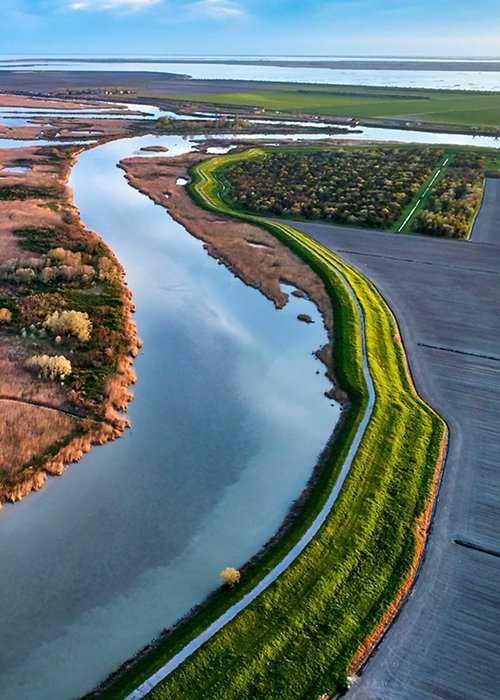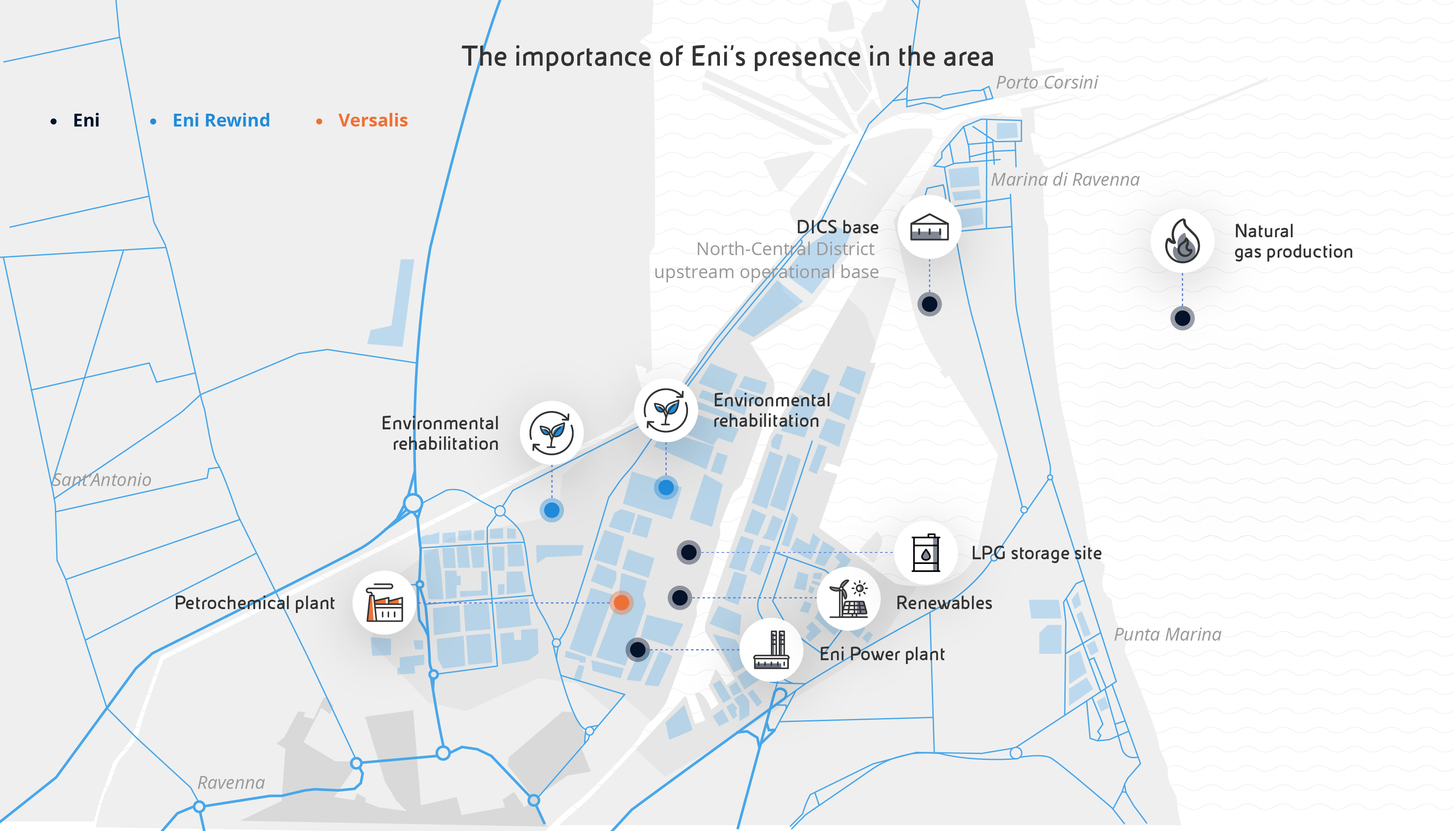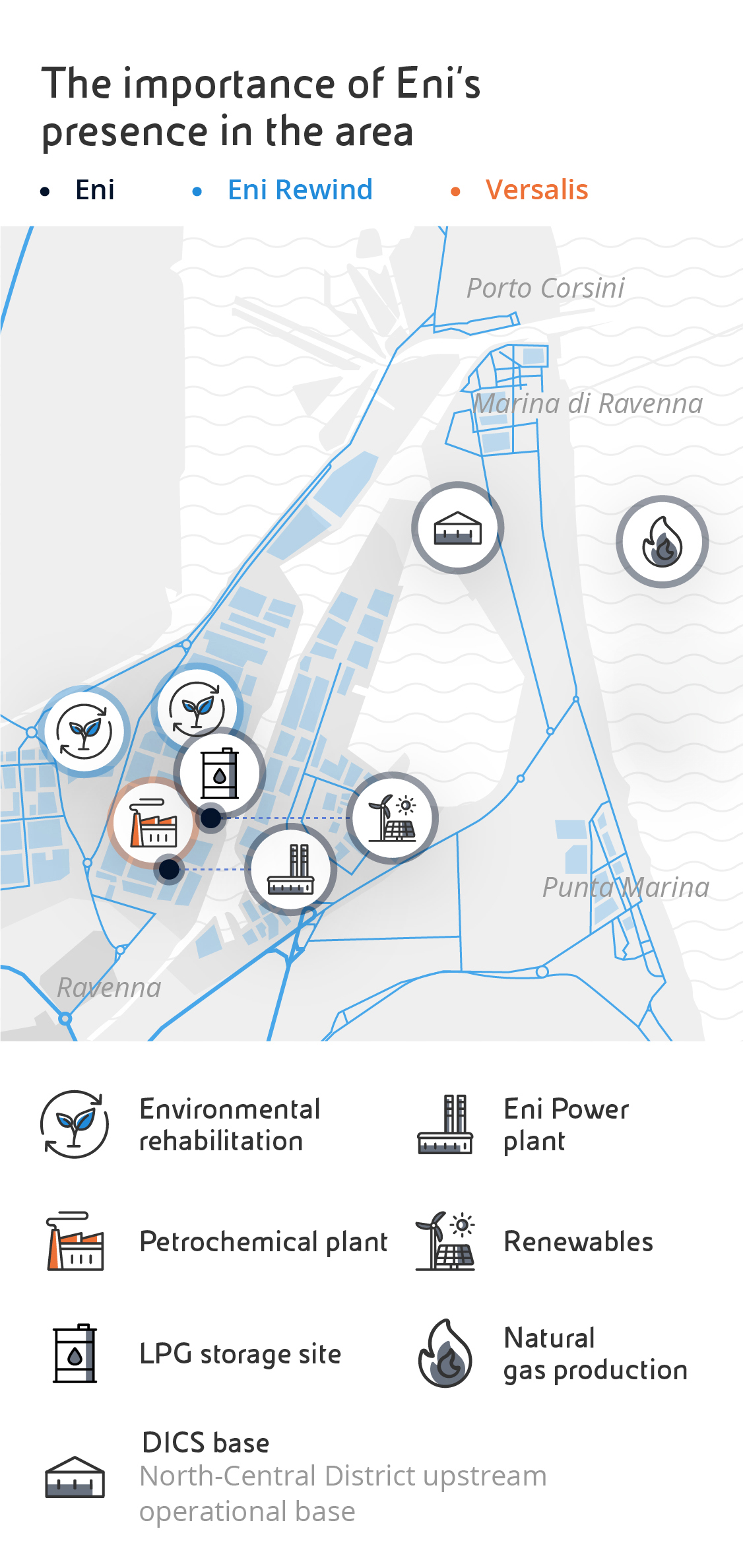The industrial hub that revolves around the port of Ravenna is an important manufacturing district at the economic and social level in Italy. Due to its strategic location close to the Adriatic Sea's offshore activities, some of the district's strongest sectors are engineering, mechanics, and logistics related to the upstream processes of the natural gas supply chain: areas that employ specialized labor and high technology. With the threat of natural gas field depletion looming, the introduction of a carbon dioxide storage hub is going to be a major opportunity for economic activities previously revolving around natural gas production. World-renowned for their professional expertise, local technicians and operators can be redeployed and trained. In this way, the district's characteristic economic vibrancy will find a new purpose in this emerging sector. Meanwhile, with gas production due to cease in the coming years. Only a small portion of it will be reused for CO₂ storage. This repurposing of assets, in line with circular economy principles, will enable a substantial decarbonization project to be implemented quickly and cost-effectively. As a result, local industries will have the possibility of decarbonizing their operations without having a negative impact on the area.
Our Channels
enioilproducts
Your business, our energy
Produtcs and solutions for business and customers Italy and abroad







